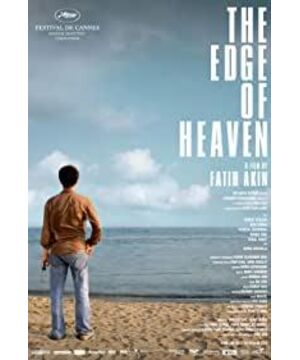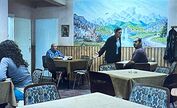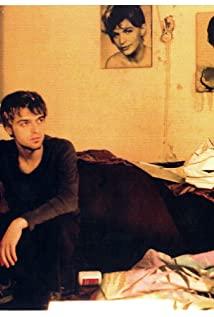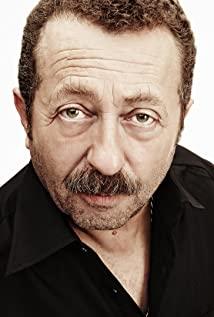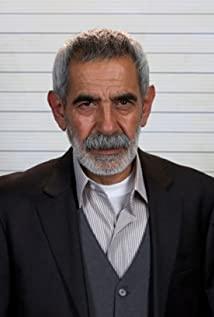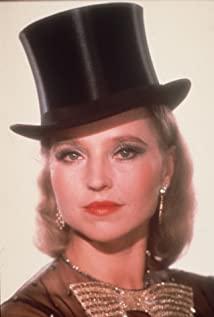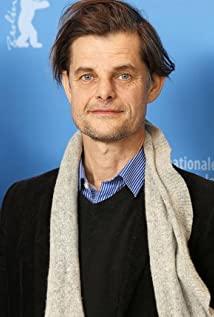After careful calculation, the film "On the Other Side of Life" lists too many contradictions: political differences between countries, cultural differences, racial discrimination, wealth gap, religion, homosexuality, intergenerational differences Generation gap... If it is necessary to discuss political issues and racial issues as the background of the story, the homosexual relationship may add a little more convincing to Lot's persistent help Aita's behavior, the two Muslims warned Yet not to The necessity of the prostitute scene is really doubtful. When it comes to family conflicts, although the conflicts between father and son, mother and daughter are looming, they never interfere with the development of the story, and only exist as a by-product of the development of the plot. In the end, these conflicts have also been resolved tenderly. Perhaps, this is a hint from the director: for us ordinary little people, although those macroscopic and deep-level contradictions have powerful power, the power that can really provide an inflection point for the trajectory of life still comes from our hearts. This power may come from sympathy, tolerance, curiosity and pursuit of the meaning of life, and of course, it may also come from the least enlightened family. The intention of director Faith Arkin is revealed through the language of the two characters, when the owner of the small bookstore explains why he wants to sell his favorite bookstore and when Lott tells his mother on the phone how she first experienced life meaning time.
"On the Other Side of Life" is a movie with almost no climax, the last time I saw a movie of this type was "The Squid and the Whale". But the two films are very different. "The Squid and the Whale" is a well-established family ethics story, and it should be told the way the director told us. On the other hand, "On the Other Side of Life" tells the story of how people live and die amid deeper contradictions such as politics and culture. It is somewhat surprising that it is told so quietly.
Faith Arkin's calmness is reflected in his equal treatment of every plot and every shot. Whether it is a plot of intensifying contradictions, or a scene that can be sensational, whether it is crying, loneliness, reunion, or death, he has no more stops. It seems to be asking: Do you understand? Understood? OK, next episode. Perhaps because of this, the first two parts are named "The Death of Yete" and "The Death of Lot" respectively, keeping the audience's psychological motivation by keeping the audience shrouded in a mixture of ominous and curious emotions.
If Faith Arkin had any preference, he slowed down his speech for a certain scene, and all the way through, I found only two. One is the pursuit of Lot and several poor Turkish children, and the other is at the end of the film, where Najet sits by the sea, waiting for his father to return from fishing. So in my opinion, these two scenes are also the most symbolic. Lott's pursuit is a metaphor for the process of people asking about the meaning of life. You may never catch up with this chase, although it's not far from you, it's on a street you're not familiar with. Maybe you catch it by mistake like Lot, but you can never predict what you catch, it can't guess like a child's heart. And facing the sea waiting, it is the director himself. Faith Akin understood that he was just telling a story, which could not affect life, just like it could not affect the sea, but he was willing to wait and believed that the result he was waiting for would appear just like his father.
In a background full of many major contradictions, quietly telling a story about the inner world of a small person, the director showed strong restraint, but he had to pay the price for it. The director had to downplay most of the cultural conflicts and did not discuss in depth the politics and laws of Turkey. Although Aita's flight makes people feel that compared with the relatively mature political and legal systems in the West, Turkey's situation can only be described as bad. But when Lot came to Turkey, although he encountered a little setback, it was easily resolved. Aita's prison life was also relatively untroubled, with living conditions and management largely blameless (although a lot of women were convicted of adultery by the way), which doesn't quite match the feel of the first half of the story. How Lot's mother finally rescued Aita has not explained. Especially in order not to interpret the deaths of Yet and Lot in terms of politics, culture, etc., their deaths were arranged so incidentally that it was almost nonsensical. Therefore, it is no wonder that some critics think that the director is too warm (I always feel that the image of the protagonist Najat and Faith Akin should be quite suitable).
I really appreciate the ending of the video. The drama seems to reappear when Najet takes Lot's mother and Aita to the countryside to find his father. What will be the story after the meeting? I even wondered for a moment that there was a connection between the two single-parent families before the story started. However, the director only left a back view of Najat looking out to the sea and it stopped abruptly. Which side is the other side? Which side is this side relative to the "other side"? These are all unclear. The word "Zhe" does not give a specific orientation, but a perspective of "looking", which is finally perfectly combined with Najat's back.
View more about The Edge of Heaven reviews


